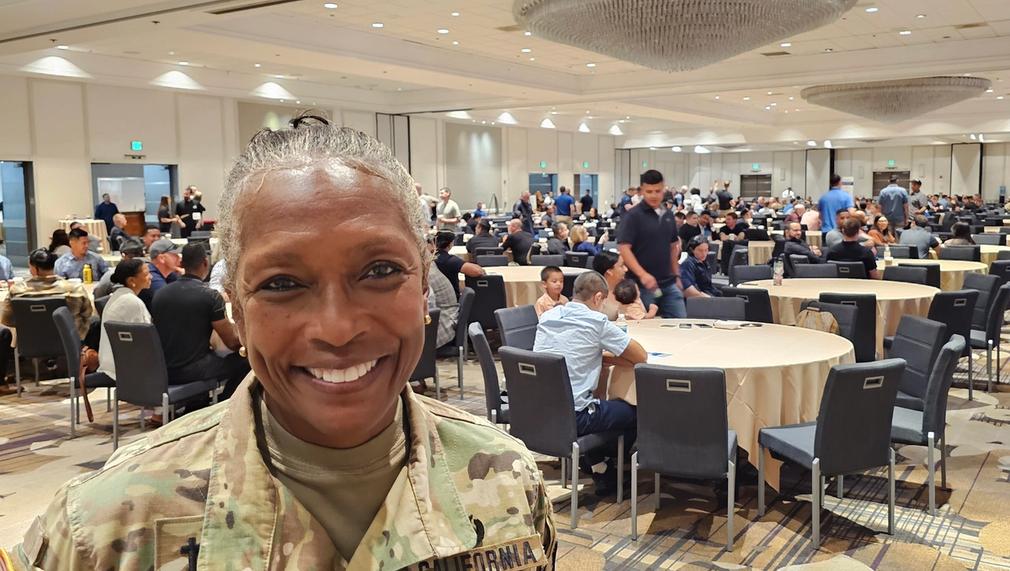Semper Fidelis: A Mission to Serve and Sustain
This program connects homeless veterans and at-risk youth with community colleges and housing resources to build stable, self-sufficient futures. Through educational pathways, participants gain skills that lead to employment and long-term housing stability. By combining academic opportunity with housing support, we help individuals transition from crisis to community. This program contributes to the recovery of our communities by restoring the lives of our most vulnerable citizens.

What is the primary issue area that your application will impact?
Adult literacy
In which areas of Los Angeles will you be directly working?
South LA Central LA Long Beach County of Los Angeles (select only if your project has a countywide benefit) South Bay
In what stage of innovation is this project, program, or initiative?
Expand existing project, program, or initiative (expanding and continuing ongoing, successful work)
What is your understanding of the issue that you are seeking to address?
Homelessness is a complex crisis often rooted in systemic issues such as poverty, trauma, mental health challenges, and lack of access to affordable housing. Without stable housing, it becomes nearly impossible to pursue education or employment, creating a cycle that is hard to break without targeted intervention.
At-risk youth face barriers such as unstable housing, food insecurity, and limited access to academic support. Community colleges offer a vital bridge by providing affordable education, career training, and wraparound services that help youth gain the skills and confidence needed to succeed.
By connecting homeless veterans and at-risk youth to housing resources and college programs, we create a dual pathway to stability. Housing provides the foundation for safety and dignity, while education opens doors to employment and self-sufficiency. This integrated approach not only addresses immediate needs but also builds a future rooted in opportunity, resilience, and community.
Describe the project, program, or initiative this grant will support to address the issue.
The primary tool of this program is EDUCATION which will be embedded into homeless outreach to enroll homeless individuals into higher ed or certificated programs. The program will be embedded within the community college and working in partnership with LAHSA. The process is:
Identify homeless veterans and students through shelters, transitional housing, and - Includes case managers, peer navigators veterans and students, and academic advisors.
Offer fully online Associate Degree or certificates for flexibility and accessibility.
Include asynchronous learning, mobile-friendly platforms, and low-bandwidth options.
Academic Support:
Tutoring: Virtual and in-person academic tutoring in core subjects.
Mentoring: Veteran-student mentorship pairings to build community and accountability.
Technical Equipment: Laptops, Wi-Fi hotspots, and software provided to ensure full participation.
Housing Linkage:
Direct referrals to LAHSA housing programs for veterans and students.
Ongoing housing case management to support retention and stability.
Peer-to-Peer Recruitment & Support:
Veterans mentor students and help recruit them into college or military service.
Students support veterans in navigating academic systems and digital tools.
Education is more than a path to employment—it restores dignity, purpose, and identity. By combining housing stability with educational opportunity, this program empowers individuals to break cycles of homelessness and build lasting self-sufficiency.
Describe how Los Angeles County will be different if your work is successful.
This project will improve housing and employment resources for LA County older veterans and youth. The funded project will provide measurable, concrete outcomes that improve the quality of life in LA County communities.
Engaging veterans in higher education increases career and income opportunities and improves mental and physical health. Connecting veterans to youth in mentorship will encourage the youth in their educational journey and show them a path towards success.
Programs providing youth mentoring and educational scholarships would strengthen community bonds, especially in areas where veterans and youth face similar challenges with poverty and limited opportunities.
When veterans and youth form educational partnerships, entire neighborhoods benefit from increased stability, reduced crime, and stronger community networks that support housing and employment success for all residents.
Approximately how many people will be impacted by this project, program, or initiative?
Direct Impact: 100
Indirect Impact: 5,000